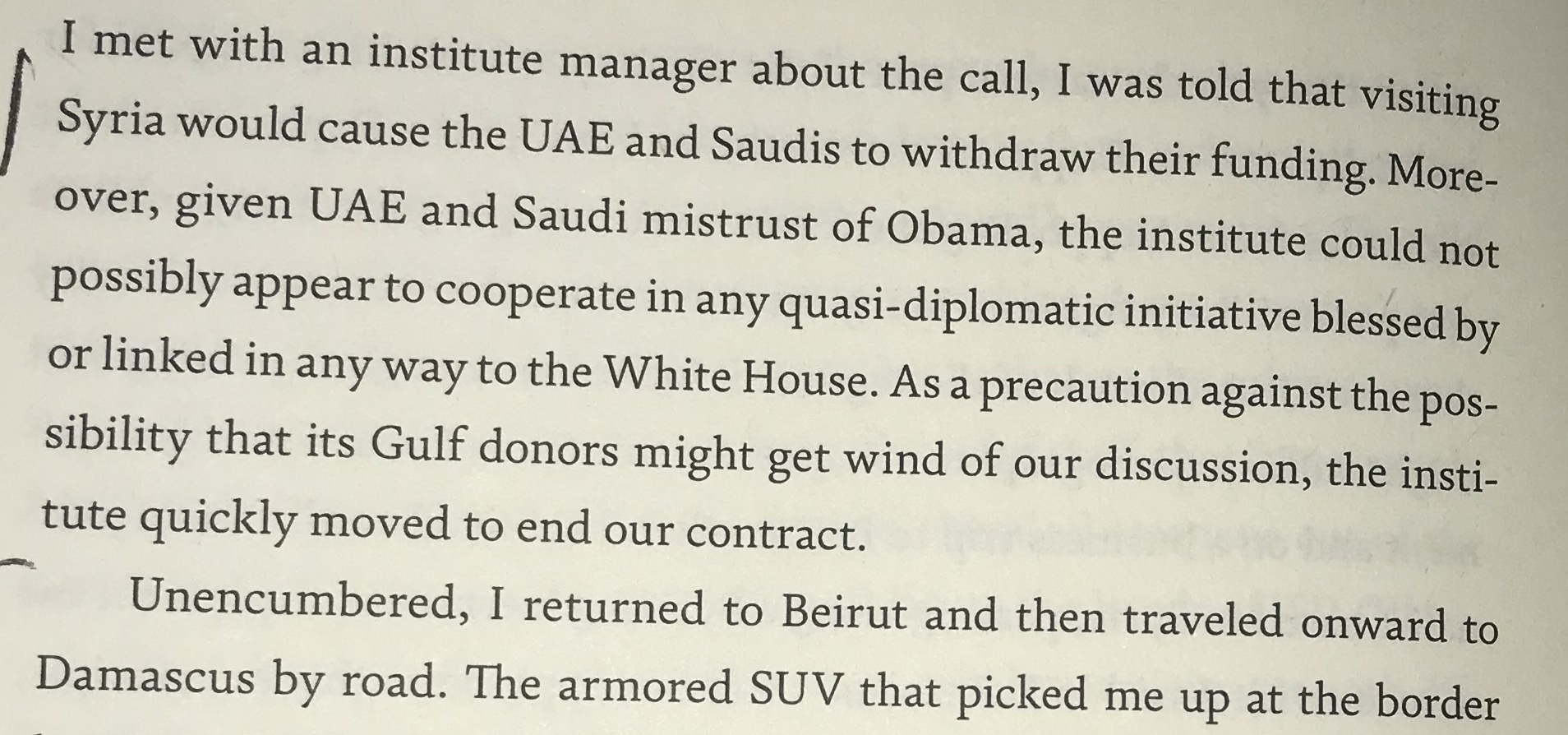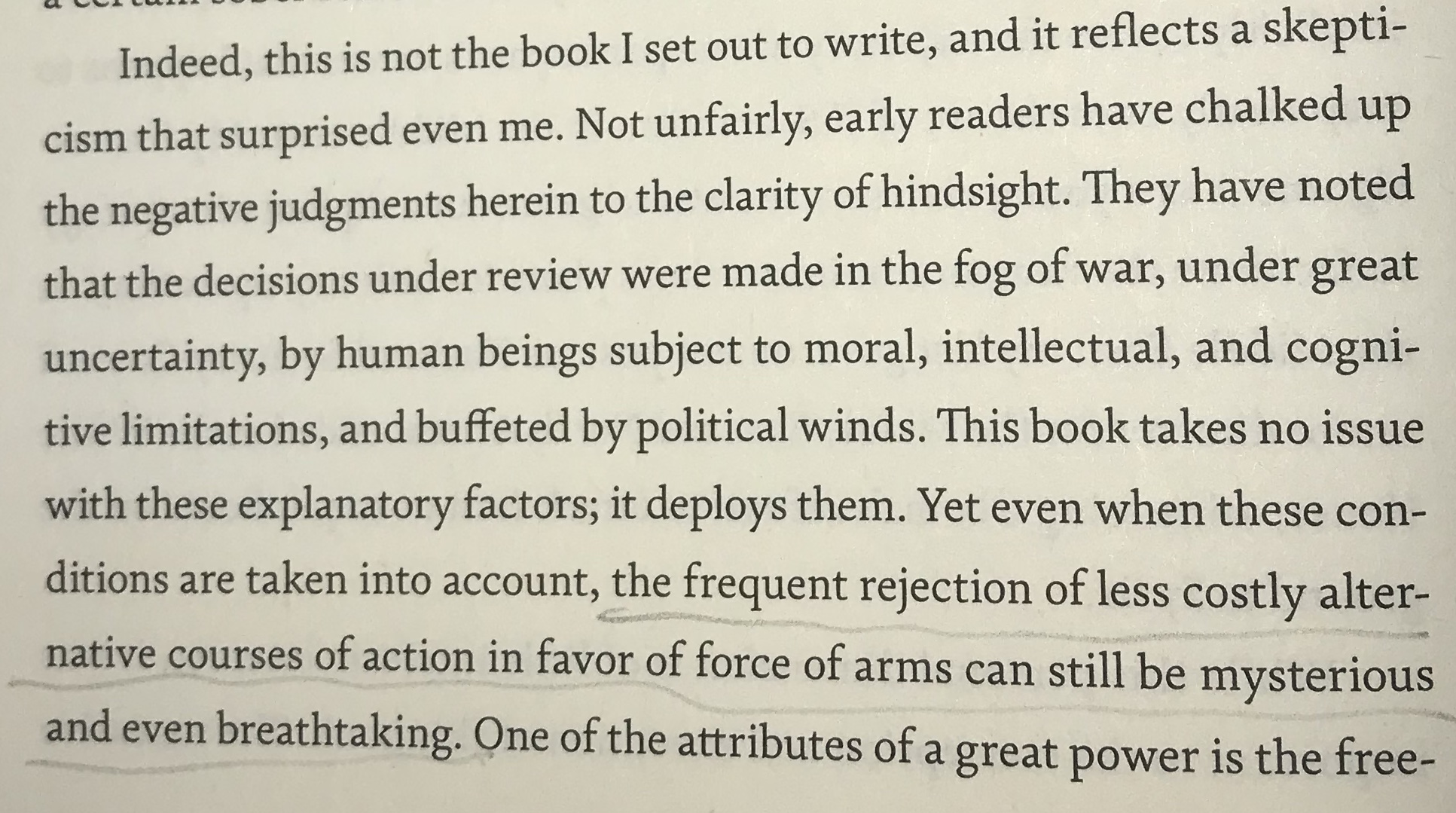Now comes (yet another!) book by one of the hordes of nation-security technocrats who dominate West Asian policymaking in Democratic administrations here in Washington. In this case, it is Grand Delusion: The Rise and Fall of American Ambition in the Middle East, a recent book by Steven Simon, a guy who has worked as first a career civil servant and then a political appointee in U.S. administrations going back to Pres. Ronald Reagan, and who between government stints has transited through DC’s ever whirling revolving door into presumably lucrative positions in all the “usual” kinds of militaristic think-tanks.
Don’t yawn yet, though. Unlike most of his counterparts in the nat-sec punditocracy who have written memoirs of their times in office, Simon at least started to reflect on “what went wrong” with U.S. policy towards West Asia (the “Middle East.”) And in the chapter on the Obama administration—in which he served as senior NSC director for the Middle East and North Africa—he reveals a number of jaw-dropping details that help to explain the in-bred, reflexively pro-military and pro-Israeli atmosphere of not just the explicitly political class in DC but also wide swathes of the supposedly “policy intellectual” class of DC think-tank-dom.
My favorite such tidbit comes in the fairly extensive section of the Obama chapter in which he’s writing about Obama’s Syria policy. On p.322, he writes about how, after he’d left the White House and was “on a business trip to Beirut”, he received an indirect invitation to go to Damascus for a discreet meeting with Pres. Assad. (This must have been early 2015, though he doesn’t pin a date onto it.) He duly went back to Washington and consulted with Rob Malley, who had replaced him in the NSC job and who was right then working hard on the JCPOA with Iran. Malley agreed that it might be good for Simon to go to Damascus to see if there could be a way for a de-escalation process to start there, as well.
Simon writes this (pp.323-24):


This is a truly refreshing way to write an “inside the Beltway” memoir! The “miraculous” (!) $20 million donation from the UAE that helped the Middle East Institute to stay alive in that era has certainly been written about before (e.g., here.) But I have never before seen any policy pundit write so openly about the pressure that MEI’s leadership—like that of nearly every other DC think-tank—puts on its affiliated “scholars” to hew to the donors’ line.
And come to think it, there are not that many members of the DC punditocracy who would write so frankly about Israel’s use of think tanks to “disseminate the views of their sponsors and influence Washington opinion.”
As it happened, Simon did get his one-on-one with Pres. Asad. Then, on his way back to DC, he briefed Malley in Lausanne on how his conversation had gone. When both men were back in DC they met again. Malley said he had discussed the Assad-Simon overture with his boss, NSC adviser Susan Rice…
who was against entertaining an overture from Assad. Malley explained her position… Assad, he said, was in a desperate situation; why throw him a lifeline? … With some regret I signaled contacts in the region that there was no prospect of a deal along the lines I’d discussed in Damascus, and there the matter ended. Malley, in retrospect, mused [when???] that turning off the channel to Assad had been a mistake, but of course there was no going back. (p.325)
Actually, the whole of the Obama chapter is studded with great revelations, concerning many aspects of the Obama administration’s steps and gross mis-steps in Palestine, Libya, and Syria. So yes, an absolute must-read. But I have to warn you that this chapter, like the rest of the book is so extremely poorly organized that reading it is a hard and confusing slog. Simon’s editors at Penguin did him a huge dis-service by not insisting that he organize all the tidbits, vignettes, and reflections he presents here into a coherent (and much more chronological) narrative. The notable lack of dates within the sections is just one of the text’s many flaws…
Some quick examples of the text’s disorganization from the Obama chapter will suffice. My own clear recollection of the start of the Obama administration was that he came into office shortly after the ghastly Israeli assault on Gaza known as “Operation Cast Lead” had finally wound down. That assault affected not only the Palestinian-Israeli dynamic but also the politics of the entire region. But not a mention of it here, though Simon did devote a few disjointed segments of the chapter to the parlous stasis (or worse) in Palestinian-Israeli negotiations. No mention, either, of Obama’s appointment on Day 1 or Day 2 of his presidency of former Sen. George Mitchell as his Palestinian-Israeli special negotiator. (Yes, there’s a mention later on of the dreadful Dennis Ross elbowing his way into the negotiation, but sadly little context is given to that, either.)
Then, if you want to actually follow the narrative on Obama’s policy on Syria, if is absolutely imperative to understand that Islamic State had been infiltrating people, weapons, and money into Syria (from Iraq and Turkey) from early 2012 and that from mid-2013 on it broke with the Qaeda-affiliated forces there and proceeded—in parallel with the Al-Qaeda formations there—to batter the government-held regions very hard, seizing Raqqa and numerous other cities and coming very close to Aleppo.
But no, in Simon’s text, there are sections on Obama’s Syria policy with no mention of IS’s eruption into the Northeast of the country; and then later, there are sections on Obama’s policy toward Islamic State. It just doesn’t make sense unless you know the backstory and can piece the whole, broader story together yourself.
There are also frustratingly few descriptions of the extent to which the arms and money Washington funneled to the Syrian opposition just ended up being passed straight on to either the Islamic State or the Al-Qaeda affiliates, many of the details regarding which were fairly well documented at the time… and even less actual analysis of how that came to happen, either in Syria or in Libya…
Simon doesn’t present the fate of U.S. policies as unfolding in real time, with different story-lines interacting and intersecting all along the way, and as affecting real, very large, and deeply suffering societies. He presents it more as a series of small, disjointed and sterile case-studies.
Which is a pity, because he has a powerful set of stories to tell and seems little inhibited by Washington’s usual form of (pro-military, pro-Israeli) “political correctness.” And at many points—as with his telling of the MEI story, or his many references to Biden’s role as a fuzzy and constant protector for Israel—he seems quite ready to reveal to his readers many usually well-hidden aspects of how it is that power actually gets wielded within the DC Beltway.
In his Preface, he writes this (pp. xiv-xv):


I was a bit surprised by the reference to the Lord’s Prayer there, and also by the reference (however perfunctory) to “the cost of American actions to largely powerless Middle Eastern populations.” Then I read on Simon’s Wikipedia page that he has an MTS from Harvard Divinity School. It strikes me he might be able to work quite a bit more with the material he has in this book and write a very much better, more reflective and constructive book both about what went wrong with U.S. policymaking that led to all that harm that U.S. leaders inflicted on Middle Eastern populations—and also, about what Americans and our leaders could do to end and make reparations for that harm.
But if he does that, he absolutely should not use the same editors he had from Penguin. Please!